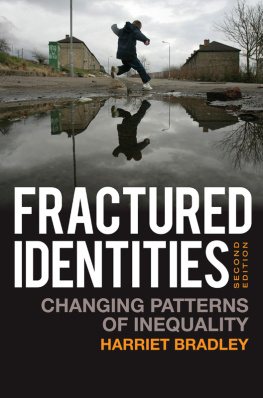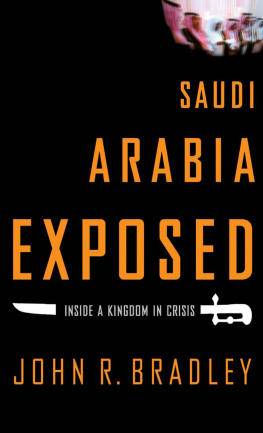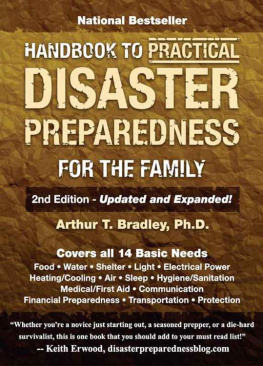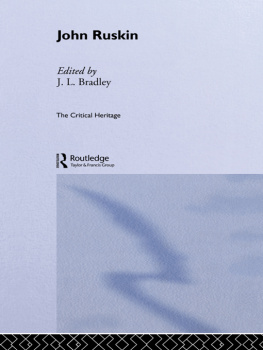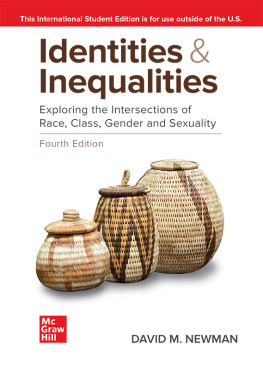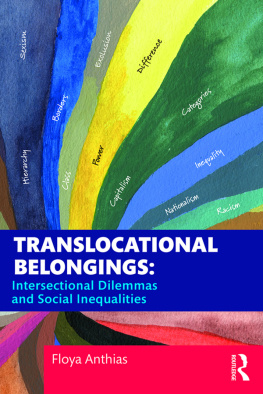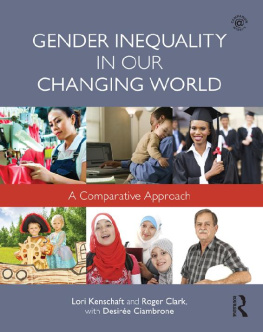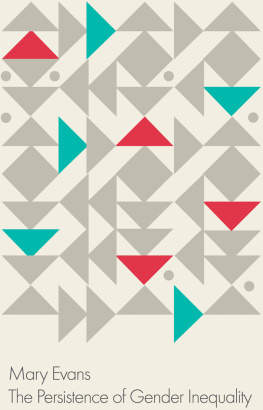
Dedication
In memory of Michael Martindale, who dedicated his life to the ideal of a better life for all in the community
Copyright page
Copyright Harriet Bradley 2016
The right of Harriet Bradley to be identified as Author of this Work has been asserted in accordance with the UK Copyright, Designs and Patents Act 1988.
First published in 1996 by Polity Press
This edition first published in 2016 by Polity Press
Polity Press
65 Bridge Street
Cambridge CB2 1UR, UK
Polity Press
350 Main Street
Malden, MA 02148, USA
All rights reserved. Except for the quotation of short passages for the purpose of criticism and review, no part of this publication may be reproduced, stored in a retrieval system, or transmitted, in any form or by any means, electronic, mechanical, photocopying, recording or otherwise, without the prior permission of the publisher.
ISBN-13: 978-0-7456-4407-3
ISBN-13: 978-0-7456-4408-0 (pb)
A catalogue record for this book is available from the British Library.
Library of Congress Cataloging-in-Publication Data
Bradley, Harriet.
Fractured identities / Harriet Bradley. Second edition.
pages cm
Includes bibliographical references and index.
ISBN 978-0-7456-4407-3 (hardcover : alk. paper) ISBN 0-7456-4407-4 (hardcover : alk. paper) ISBN 978-0-7456-4408-0 (pbk. : alk. paper) ISBN 0-7456-4408-2 (pbk. : alk. paper) 1. Equality. 2. Social classes. 3. Group identity. I. Title.
HM821.B73 2015
305dc23
2015012741
Typeset in 10.5 on 12 pt Sabon
by Toppan Best-set Premedia Limited
Printed and bound in the UK by Clays Ltd, St Ives plc
The publisher has used its best endeavours to ensure that the URLs for external websites referred to in this book are correct and active at the time of going to press. However, the publisher has no responsibility for the websites and can make no guarantee that a site will remain live or that the content is or will remain appropriate.
Every effort has been made to trace all copyright holders, but if any have been inadvertently overlooked the publisher will be pleased to include any necessary credits in any subsequent reprint or edition.
For further information on Polity, visit our website:
politybooks.com
Acknowledgements
This book originally arose out of some work written for the Open University course D203 Understanding Modern Societies. I wish to thank David Held of Polity for offering me the chance to expand on my exploration of interacting dynamics. At times it has seemed an act of sheer hubris to write a book dealing with so many aspects of social inequality. I have drawn on the advice of people more expert than myself in specific areas. Jonathan Skerrett has been a patient and forbearing editor. Thanks go to two anonymous reviewers for useful comments on this second edition.
Introduction to Second Edition
Much has changed since the publication of Fractured Identities in 1996. In the following year, 1997, a long period of Conservative government in the UK came to an end, with the election of the New Labour government under the leadership of Tony Blair. Thus, what has become known as the Thatcher Era was succeeded by the Blair years. The New Labour method of running the country involved a mix of economic conservatism with progressive social policies, with a strong focus on confronting inequalities, opening up opportunities to people of all classes and backgrounds and bringing an end to child poverty. At the election, Blair proclaimed that Education, Education, Education was the key to producing a fairer and more just society, and a mass of policies have been developed over the past decades targeted at making schools more effective and opening further and higher education to all. Some students using this new edition of my book on inequality and identity may have been the beneficiaries of such policies.
However, while there have been improvements in some areas of disadvantage, the gap between rich and poor has not been closed; on the contrary, the latest figures show that it has become wider than ever in Britain, and the same is true of the United States of America. In later chapters of the book, I shall be addressing the reasons for this, but, very broadly, it can be argued that the attachment of Bush and Blair to neoliberal economic policies impeded any attempt to break down the barriers of class and poverty. In Britain, the widening of the gap has been even more marked since the coming to power of the Coalition government of David Cameron and Nick Clegg in 2010. It will be argued in subsequent chapters that the policies of austerity espoused by the Conservative Liberal Democrat Coalition have benefitted the rich while pushing the poor and unemployed into severe poverty, opening up the spectre of Food Bank Britain, while bankers' bonuses continue unchecked.
The past eighteen years have also seen some crucial and devastating political events which have had very strong impacts in the field of ethnic relations. The terrible events of 11 September 2001, when two planes hijacked by Muslim terrorists plunged into the twin towers of the World Trade Center in New York, causing the towers to collapse in front of the eyes of millions of horrified TV watchers and killing some 3,000 people, was to bring to the fore issues about the relation between Islam and the rest of the world. America responded by declaring a War on Terror. In 2003, tensions were compounded by America's decision to invade Iraq, with the support of Tony Blair, despite the vocal opposition of thousands of Britons. Bombs exploded by suicide bombers on the London Underground and on a bus in Tavistock Square on 7 July 2005 brought the realities of the War on Terror to London, with important impacts on the lives of Britain's Muslim populations (Bangladeshis, Pakistanis, North Africans and Somalis, among others).
Less dramatic, but equally important in its impact on ethnic relations, was the enlargement of the European Union (EU) with the addition of ten new member states, largely from the old Soviet bloc, and including Poland, Hungary, Latvia, Slovakia and Cyprus. This added 100 million people to the Union, and was followed in 2007 by the accession of Bulgaria and Rumania. Since citizens of member states have rights to work in other EU countries, this opened up new patterns of immigration, thereby increasing the diversity of the UK's multiethnic population. Many Eastern European migrant workers, especially Poles, have come to Britain and Ireland to find better-paid jobs than those available in their home countries.
These developments have led to extensive debates about nationality, identity and integration within the UK, seen as one of the world's most ethnically diverse nations. In particular, a controversy has evolved around the notion of multiculturalism, which will be discussed in chapter 6 of this book. Arguably, all the political events mentioned above have kept ethnicity and racism to the fore as a particular focus for sociological research and discussion, with some of the other aspects of social differentiation, such as gender, receiving rather less public and academic attention. The combination of European migration to Britain and public panic about Muslims, described by sociologists as Islamophobia, has led to much more overt expressions of racism, contributing to the increased political presence of racist and anti-immigration parties, such as the English Defence League; in 2014, the UK Independence Party, headed by the charismatic if controversial Nigel Farage, made major advances in local and European elections and achieved a 13 per cent share of the vote in the 2015 General Election.
Next page
